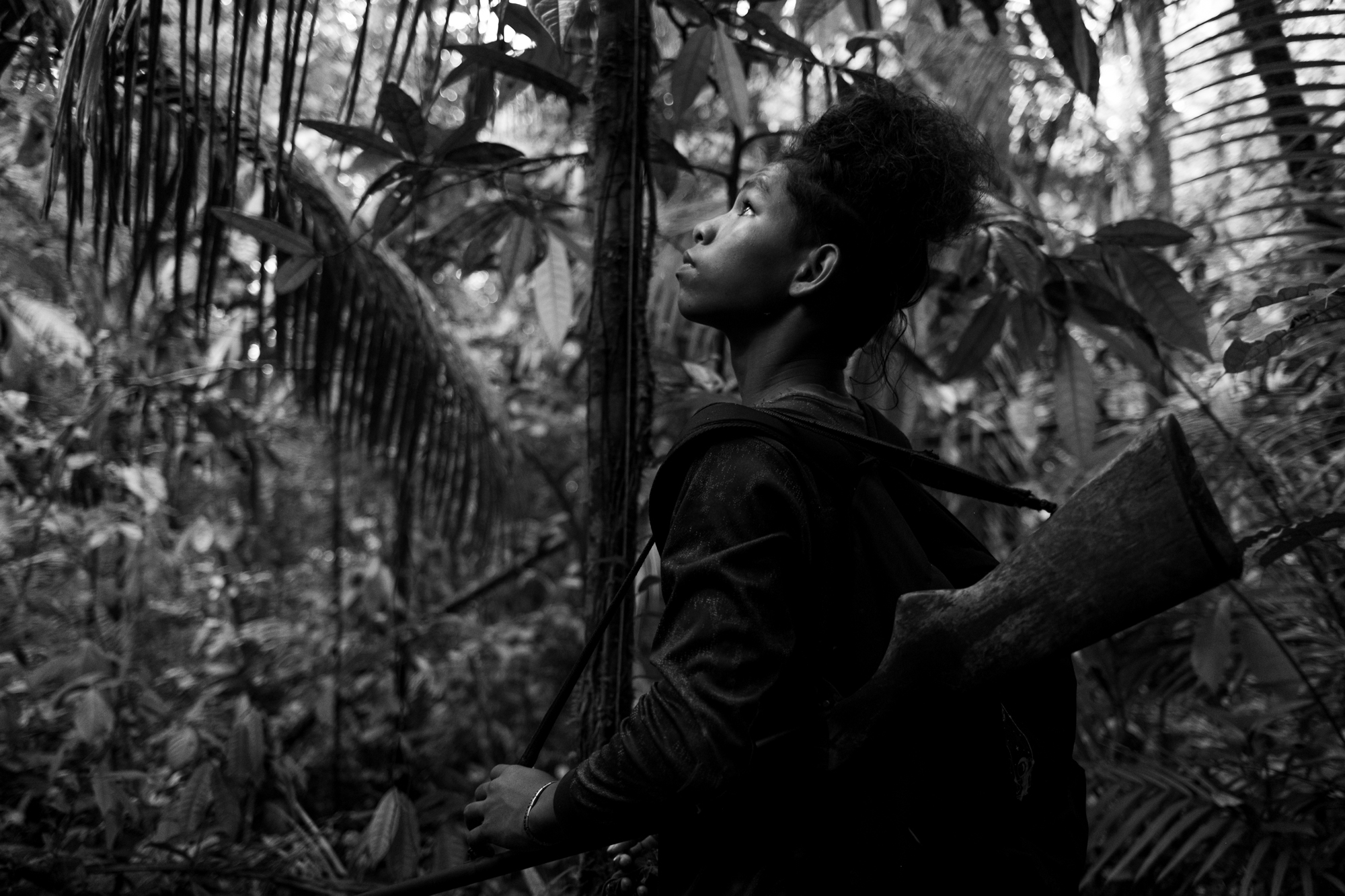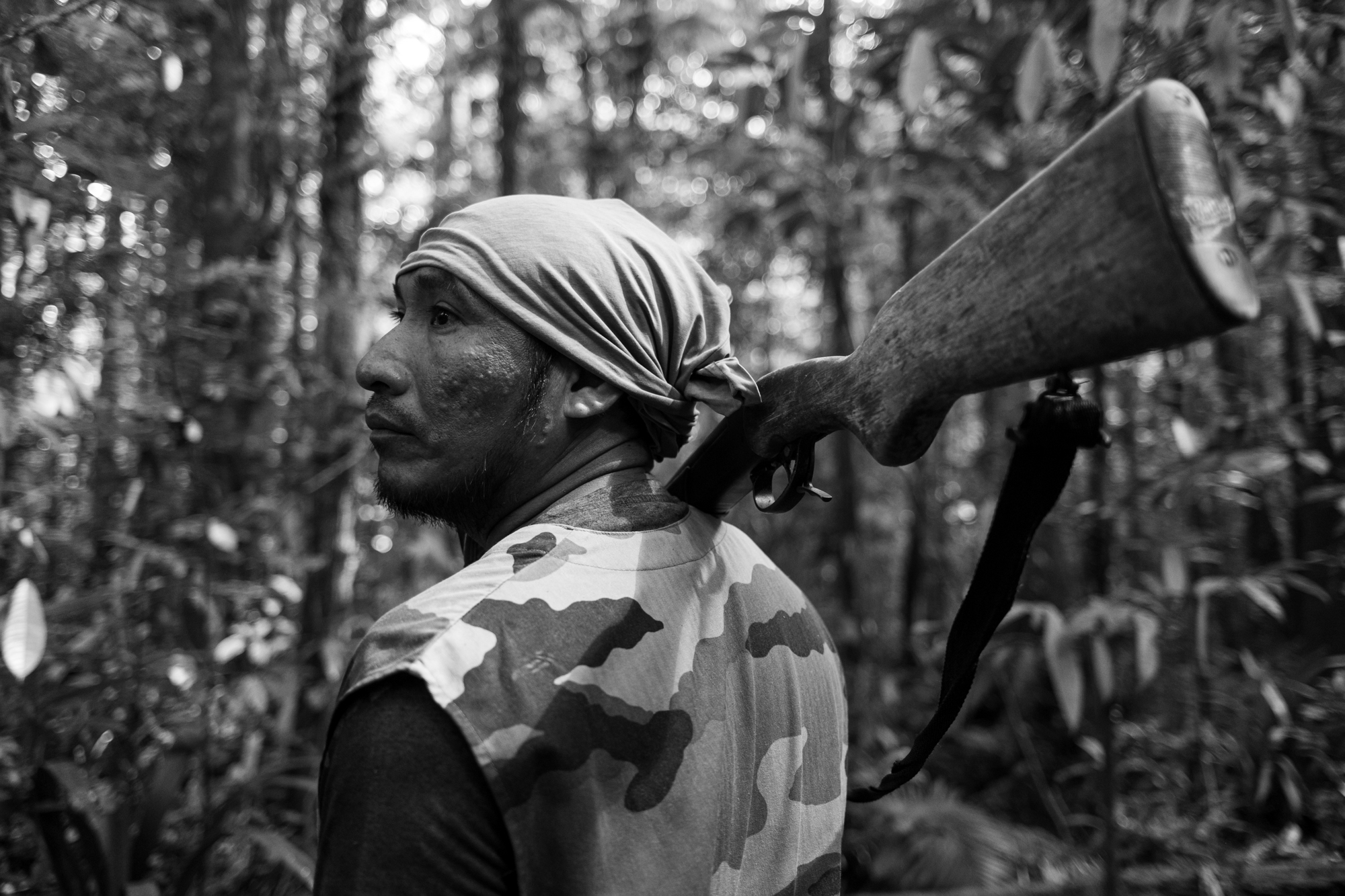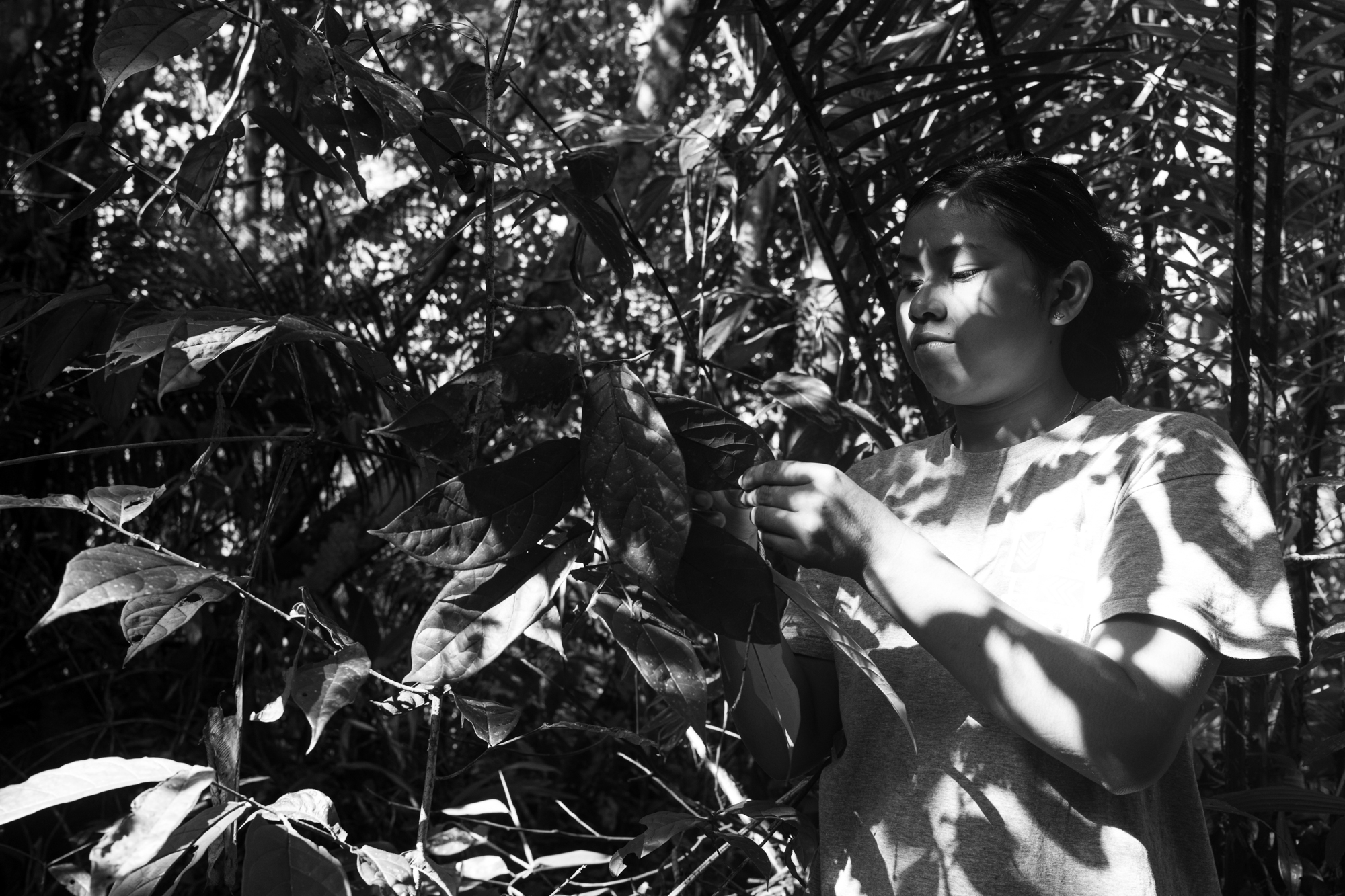The edge of the forest
The struggle of an Indigenous village in French Guiana against deforestation and the building of an electric power plant in the Amazon
2023
Since 2019, inhabitants of Prospérité have been rushing into the forest at the slightest noise from quads or excavators to stand in the way of machines and prevent deforestation. Their village is less than two kilometers away from the construction site of the disputed Centrale électrique de l’Ouest guyanais (CEOG – Western French Guiana Power Plant), a project carried by French startup company HDF Energy, where 16 hectares of rainforest have already been cut down.
Since its inception, this innovative project combining photovoltaic panels and hydrogen energy storage has sparkled fierce opposition from local residents. The planned construction site is right in the middle of the “living zone” of the villagers who belong to the Kali’na community, one of the six Indigenous peoples of French Guiana. Following in the footsteps of their ancestors, they engage in subsistence hunting and fishing, as well as slash-and-burn agriculture and the production of food derived from cassava. These practices promote the physical well-being of the inhabitants, strengthen the social fabric of the community and foster intergenerational transmission. The implementation of the power plant would directly threaten these activities, which account for an integral part of Kali’na cultural identity. This should be put into perspective with the wider historical context whereby all Indigenous peoples of French Guiana have been subjected to centuries of colonization and forced evangelization, and continue to be threatened today by the advent of modernity and globalization.
Beyond the well-being of the inhabitants of Prospérité alone, the outcome of this struggle will resonate throughout French Guiana and perhaps beyond. A forced passage by the CEOG, backed by the State and its armed wing, would result in episodes of pointless violence and become the umpteenth symbol of a predatory logic of development that ignores the social complexities on the ground. On the contrary, in the wake of the victory against the “Montagne d’or” mining project in 2019, relocating the power plant would send a strong signal about the absolute urgency of rethinking consultation processes prior to the implementation of energetic, industrial and mining projects that too often harm Indigenous peoples historically oppressed on their ancestral lands. While it is essential to turn to renewable energies in the context of climate change, the transition cannot be made at the cost of sacrificing the most vulnerable populations whose way of life has in fact contributed little to global carbon emissions.
Between mid-April and mid-May 2023, I lived during one month in the village to document the inhabitants’ day-to-day life, the strong links between their culture and the rainforest, and their struggle against the power plant. For now, the full story is available only in its original version in French.


































